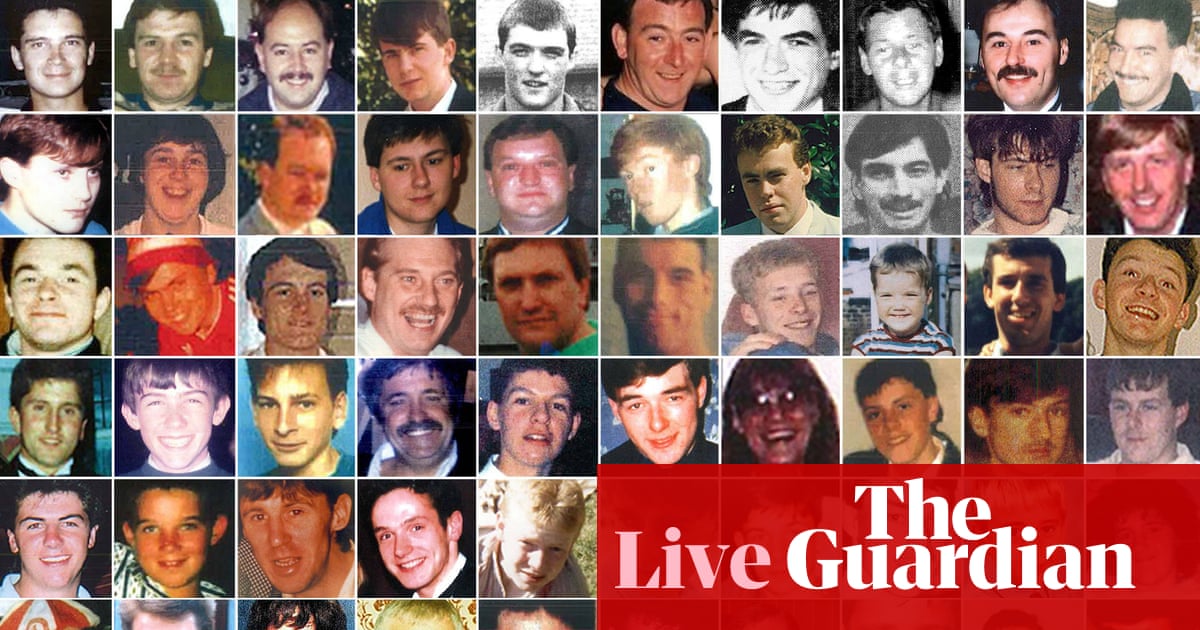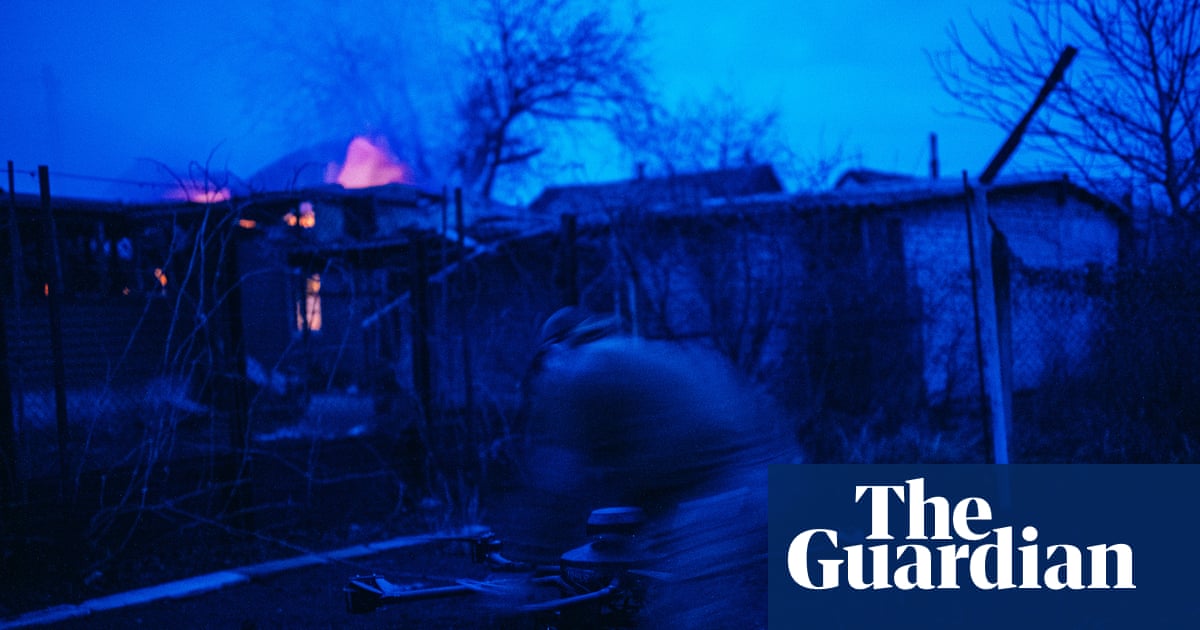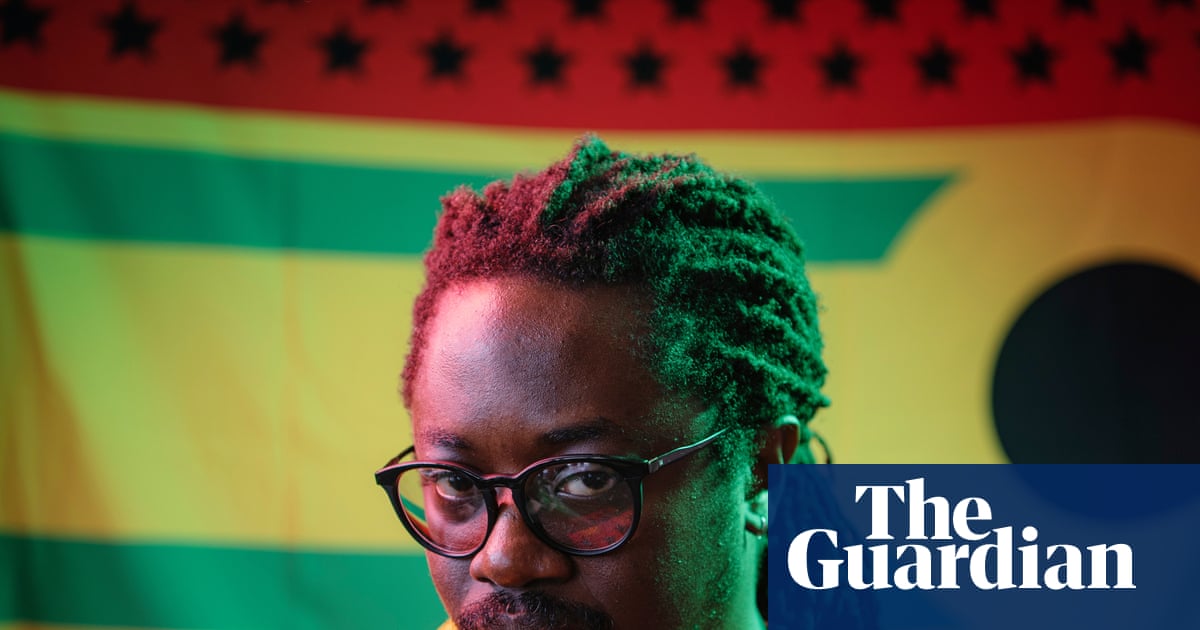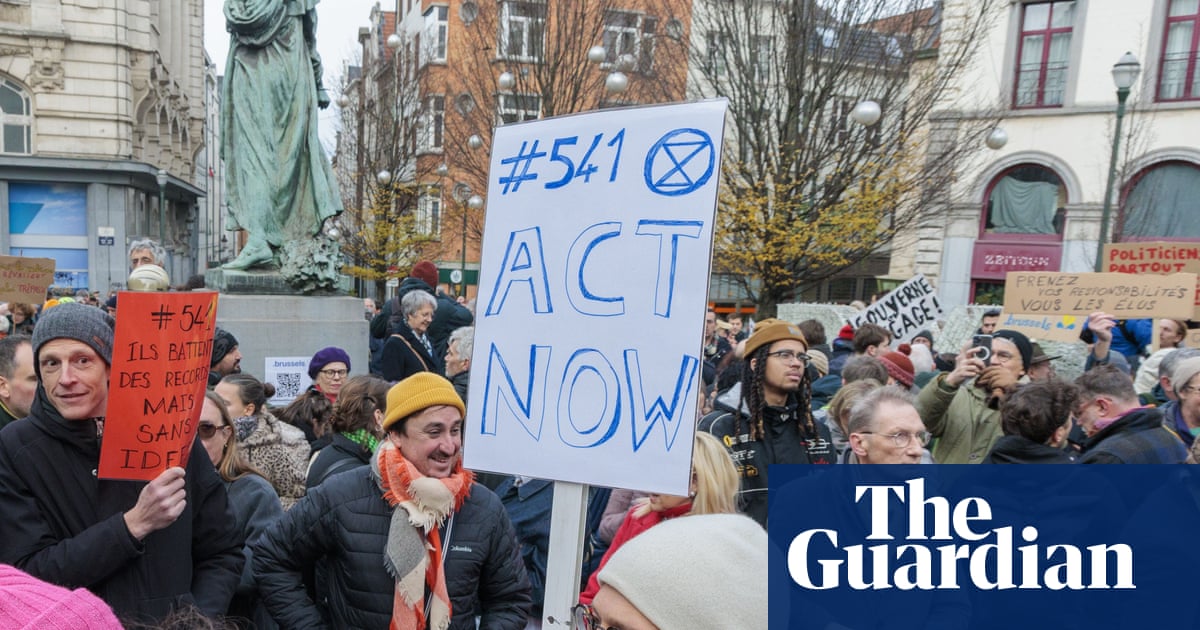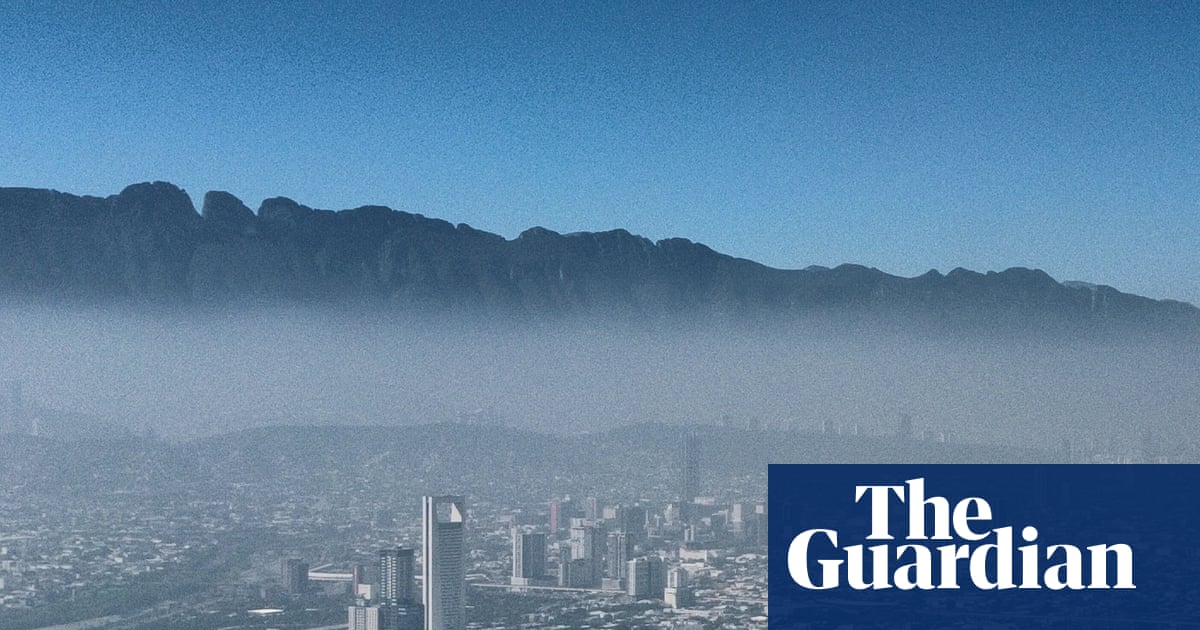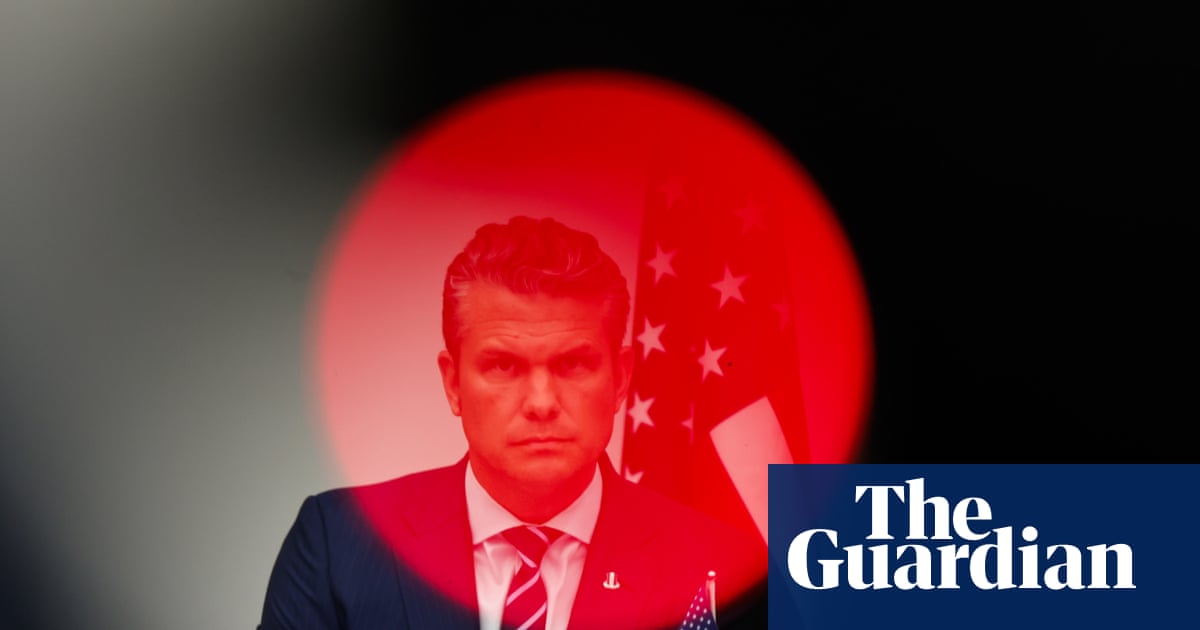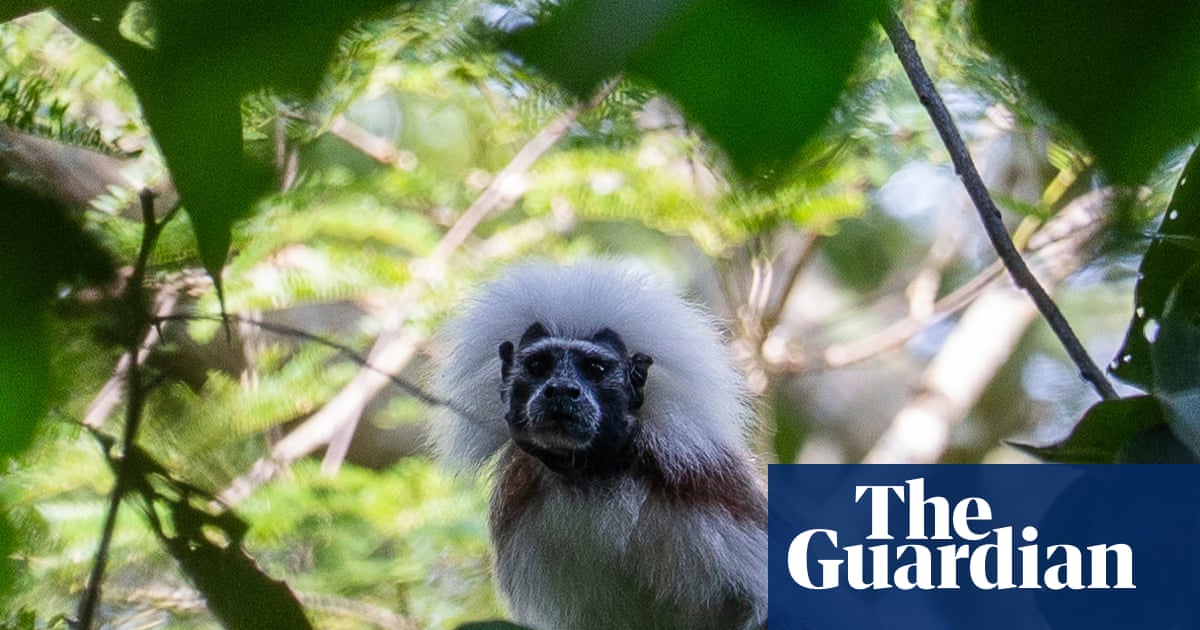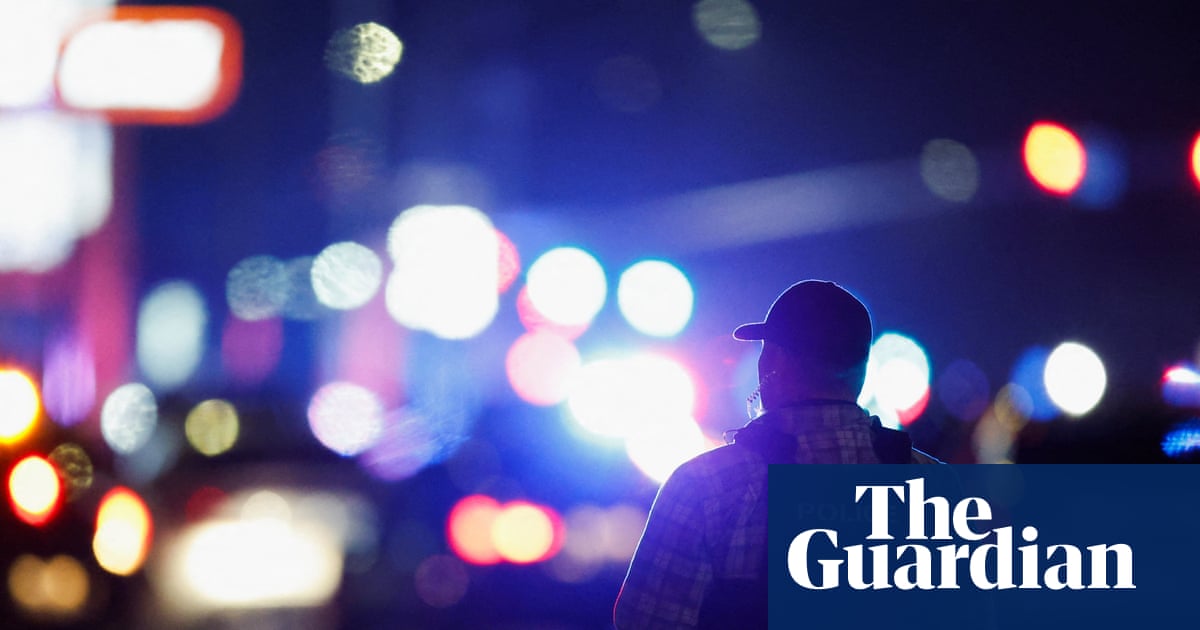French military personnel have boarded an oil tanker named on a list of Russia’s “shadow fleet” vessels and suspected of being a launchpad for mystery drone flights that forced the closure of airports in Denmark last week.
Photos showed navy personnel on the deck of the tanker, known as the Boracay, which has used numerous identities and was one of four Russia-linked vessels in the seas near Denmark at the time of the drone sightings on 22 and 24 September, which so far have not been fully explained.
The tanker was sailing from the Russian oil terminal in Primorsk near St Petersburg, carrying 750,000 barrels of crude oil, to Vadinar in India, but was intercepted by a French naval vessel on Sunday and diverted towards Saint-Nazaire in western France while inquiries continue.
Earlier in the day it had been placed under investigation by the French public prosecutor, a move described by Emmanuel Macron as a “good thing”. The Kremlin said it had no information about the tanker or the incident when asked.
Stéphane Kellenberger, the public prosector in Brest, in western France, said an investigation was taking place after the crew’s “failure to justify the nationality of the vessel” and “refusal to cooperate”.
Boracay, a Benin-flagged tanker, had just changed its name from Pushpa. Under that name, it was monitored sailing west around Denmark last week, and was cited by naval experts as one of a handful of Russia-linked vessels that may have been involved in the drone incidents.
Copenhagen airport was closed for four hours in the evening of 22 September and Aalborg airport two days later, after drones were sighted in Danish airspace. None, however, were shot down and while Denmark has pointed the finger at Russia its investigators have not been able to say who is responsible.
One line of inquiry is that the drones – almost certainly larger delta or fixed-wing craft – were launched from a ship or ships near Denmark, giving the country’s military little time to respond. Though the drones’ identity is not known definitively, such drones can be launched from a catapult that could easily be carried on a large ship.
Investigations by Danish media have also identified two other commercial vessels, the Astrol-1 and the Oslo Carrier-3, as sailing in the region at the time, and a Russian warship, the Aleksandr Shabalin, which was filmed by a Danish tabloid from a helicopter south of Langeland, at the very west of the Baltic.
A further incursion took place over northern Germany last week. Drones believed to be engaged in reconnaissance flew over military sites and infrastructure in the northern German state of Schleswig-Holstein, according to an official assessment cited in a report in Der Spiegel.
On Wednesday, Mette Frederiksen, the Danish prime minister, said Europe faced a “hybrid war,” referring to drone incursions over Denmark and Poland during September. “From a European perspective, there is only one country that is willing to threaten us, and it is Russia,” she added.
Copenhagen will host an EU summit on Wednesday, where leaders will discuss developing a “drone wall” to counter threats, followed by a meeting of the 47-country European Political Community on Thursday. Several European nations, including the UK, have deployed anti-drone defences to help Denmark this week.
Boracay, identified by its international maritime order number, is subject to economic sanctions by the UK, the EU and others. The UK said in October 2024 the tanker, then called Varuna, was part of Russia’s shadow fleet, and “is involved in carrying oil or oil products that originated in Russia to a third country”.
The shadow fleet is a term used for vessels whose ownership is hard to trace or who are deceptively identified but are used by Russia and other countries to trade oil and other goods clandestinely, often to avoid economic sanctions.
In April this year, the tanker, then known as Kiwala, was detained by Estonian authorities after they were unable to confirm its registry in Djibouti. Initially, the Estonians were told the ship’s registration had been cancelled, but two weeks later the Kiwala was released after Djibouti said it would accept responsibility until May.
Of the other two commercial ships seen near Denmark at the time of the drone incidents, Astrol-1, which was tracked on the Kattegat strait near Copenhagen the same day as the drone incident near the capital, is now docked at St Petersburg.
Oslo Bulk, a Norwegian shipping company and the owner of the Oslo Carrier-3 vessel, said it had been “a bit surprised by all the media attention” on its ship, which it said was carrying a steel cargo east from Germany to Lithuania.
The owners admitted it used Russian crews on “all our ships” because of their knowledge of cold waters, but said the vessel had been searched by “Nato military personnel” before being allowed to go on to Finland.

 2 months ago
67
2 months ago
67
